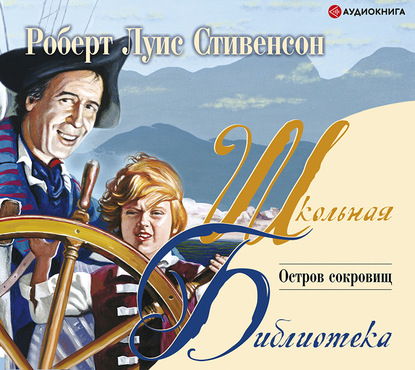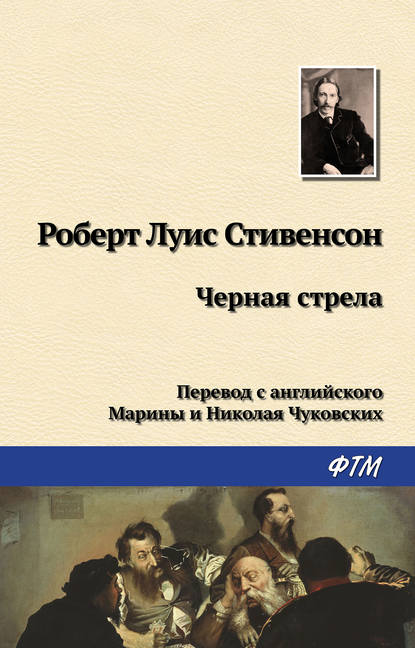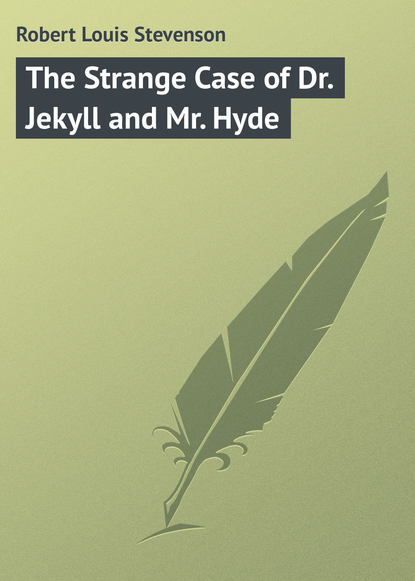
Полная версия
Memoir of Fleeming Jenkin
In 1845, while still lieutenant, Charles Jenkin acted as Admiral Pigot’s flag captain in the Cove of Cork, where there were some thirty pennants; and about the same time, closed his career by an act of personal bravery. He had proceeded with his boats to the help of a merchant vessel, whose cargo of combustibles had taken fire and was smouldering under hatches; his sailors were in the hold, where the fumes were already heavy, and Jenkin was on deck directing operations, when he found his orders were no longer answered from below: he jumped down without hesitation and slung up several insensible men with his own hand. For this act, he received a letter from the Lords of the Admiralty expressing a sense of his gallantry; and pretty soon after was promoted Commander, superseded, and could never again obtain employment.
In 1828 or 1829, Charles Jenkin was in the same watch with another midshipman, Robert Colin Campbell Jackson, who introduced him to his family in Jamaica. The father, the Honourable Robert Jackson, Custos Rotulorum of Kingston, came of a Yorkshire family, said to be originally Scotch; and on the mother’s side, counted kinship with some of the Forbeses. The mother was Susan Campbell, one of the Campbells of Auchenbreck. Her father Colin, a merchant in Greenock, is said to have been the heir to both the estate and the baronetcy; he claimed neither, which casts a doubt upon the fact, but he had pride enough himself, and taught enough pride to his family, for any station or descent in Christendom. He had four daughters. One married an Edinburgh writer, as I have it on a first account – a minister, according to another – a man at least of reasonable station, but not good enough for the Campbells of Auchenbreck; and the erring one was instantly discarded. Another married an actor of the name of Adcock, whom (as I receive the tale) she had seen acting in a barn; but the phrase should perhaps be regarded rather as a measure of the family annoyance, than a mirror of the facts. The marriage was not in itself unhappy; Adcock was a gentleman by birth and made a good husband; the family reasonably prospered, and one of the daughters married no less a man than Clarkson Stanfield. But by the father, and the two remaining Miss Campbells, people of fierce passions and a truly Highland pride, the derogation was bitterly resented. For long the sisters lived estranged then, Mrs. Jackson and Mrs. Adcock were reconciled for a moment, only to quarrel the more fiercely; the name of Mrs. Adcock was proscribed, nor did it again pass her sister’s lips, until the morning when she announced: ‘Mary Adcock is dead; I saw her in her shroud last night.’ Second sight was hereditary in the house; and sure enough, as I have it reported, on that very night Mrs. Adcock had passed away. Thus, of the four daughters, two had, according to the idiotic notions of their friends, disgraced themselves in marriage; the others supported the honour of the family with a better grace, and married West Indian magnates of whom, I believe, the world has never heard and would not care to hear: So strange a thing is this hereditary pride. Of Mr. Jackson, beyond the fact that he was Fleeming’s grandfather, I know naught. His wife, as I have said, was a woman of fierce passions; she would tie her house slaves to the bed and lash them with her own hand; and her conduct to her wild and down-going sons, was a mixture of almost insane self-sacrifice and wholly insane violence of temper. She had three sons and one daughter. Two of the sons went utterly to ruin, and reduced their mother to poverty. The third went to India, a slim, delicate lad, and passed so wholly from the knowledge of his relatives that he was thought to be long dead. Years later, when his sister was living in Genoa, a red-bearded man of great strength and stature, tanned by years in India, and his hands covered with barbaric gems, entered the room unannounced, as she was playing the piano, lifted her from her seat, and kissed her. It was her brother, suddenly returned out of a past that was never very clearly understood, with the rank of general, many strange gems, many cloudy stories of adventure, and next his heart, the daguerreotype of an Indian prince with whom he had mixed blood.
The last of this wild family, the daughter, Henrietta Camilla, became the wife of the midshipman Charles, and the mother of the subject of this notice, Fleeming Jenkin. She was a woman of parts and courage. Not beautiful, she had a far higher gift, the art of seeming so; played the part of a belle in society, while far lovelier women were left unattended; and up to old age had much of both the exigency and the charm that mark that character. She drew naturally, for she had no training, with unusual skill; and it was from her, and not from the two naval artists, that Fleeming inherited his eye and hand. She played on the harp and sang with something beyond the talent of an amateur. At the age of seventeen, she heard Pasta in Paris; flew up in a fire of youthful enthusiasm; and the next morning, all alone and without introduction, found her way into the presence of the prima donna and begged for lessons. Pasta made her sing, kissed her when she had done, and though she refused to be her mistress, placed her in the hands of a friend. Nor was this all, for when Pasta returned to Paris, she sent for the girl (once at least) to test her progress. But Mrs. Jenkin’s talents were not so remarkable as her fortitude and strength of will; and it was in an art for which she had no natural taste (the art of literature) that she appeared before the public. Her novels, though they attained and merited a certain popularity both in France and England, are a measure only of her courage. They were a task, not a beloved task; they were written for money in days of poverty, and they served their end. In the least thing as well as in the greatest, in every province of life as well as in her novels, she displayed the same capacity of taking infinite pains, which descended to her son. When she was about forty (as near as her age was known) she lost her voice; set herself at once to learn the piano, working eight hours a day; and attained to such proficiency that her collaboration in chamber music was courted by professionals. And more than twenty years later, the old lady might have been seen dauntlessly beginning the study of Hebrew. This is the more ethereal part of courage; nor was she wanting in the more material. Once when a neighbouring groom, a married man, had seduced her maid, Mrs. Jenkin mounted her horse, rode over to the stable entrance and horsewhipped the man with her own hand.
How a match came about between this talented and spirited girl and the young midshipman, is not very I easy to conceive. Charles Jenkin was one of the finest creatures breathing; loyalty, devotion, simple natural piety, boyish cheerfulness, tender and manly sentiment in the old sailor fashion, were in him inherent and inextinguishable either by age, suffering, or injustice. He looked, as he was, every inch a gentleman; he must have been everywhere notable, even among handsome men, both for his face and his gallant bearing; not so much that of a sailor, you would have said, as like one of those gentle and graceful soldiers that, to this day, are the most pleasant of Englishmen to see. But though he was in these ways noble, the dunce scholar of Northiam was to the end no genius. Upon all points that a man must understand to be a gentleman, to be upright, gallant, affectionate and dead to self, Captain Jenkin was more knowing than one among a thousand; outside of that, his mind was very largely blank. He had indeed a simplicity that came near to vacancy; and in the first forty years of his married life, this want grew more accentuated. In both families imprudent marriages had been the rule; but neither Jenkin nor Campbell had ever entered into a more unequal union. It was the captain’s good looks, we may suppose, that gained for him this elevation; and in some ways and for many years of his life, he had to pay the penalty. His wife, impatient of his incapacity and surrounded by brilliant friends, used him with a certain contempt. She was the managing partner; the life was hers, not his; after his retirement they lived much abroad, where the poor captain, who could never learn any language but his own, sat in the corner mumchance; and even his son, carried away by his bright mother, did not recognise for long the treasures of simple chivalry that lay buried in the heart of his father. Yet it would be an error to regard this marriage as unfortunate. It not only lasted long enough to justify itself in a beautiful and touching epilogue, but it gave to the world the scientific work and what (while time was) were of far greater value, the delightful qualities of Fleeming Jenkin. The Kentish-Welsh family, facile, extravagant, generous to a fault and far from brilliant, had given the father, an extreme example of its humble virtues. On the other side, the wild, cruel, proud, and somewhat blackguard stock of the Scotch Campbell-Jacksons, had put forth, in the person of the mother all its force and courage.
The marriage fell in evil days. In 1823, the bubble of the Golden Aunt’s inheritance had burst. She died holding the hand of the nephew she had so wantonly deceived; at the last she drew him down and seemed to bless him, surely with some remorseful feeling; for when the will was opened, there was not found so much as the mention of his name. He was deeply in debt; in debt even to the estate of his deceiver, so that he had to sell a piece of land to clear himself. ‘My dear boy,’ he said to Charles, ‘there will be nothing left for you. I am a ruined man.’ And here follows for me the strangest part of this story. From the death of the treacherous aunt, Charles Jenkin, senior, had still some nine years to live; it was perhaps too late for him to turn to saving, and perhaps his affairs were past restoration. But his family at least had all this while to prepare; they were still young men, and knew what they had to look for at their father’s death; and yet when that happened in September, 1831, the heir was still apathetically waiting. Poor John, the days of his whips and spurs, and Yeomanry dinners, were quite over; and with that incredible softness of the Jenkin nature, he settled down for the rest of a long life, into something not far removed above a peasant. The mill farm at Stowting had been saved out of the wreck; and here he built himself a house on the Mexican model, and made the two ends meet with rustic thrift, gathering dung with his own hands upon the road and not at all abashed at his employment. In dress, voice, and manner, he fell into mere country plainness; lived without the least care for appearances, the least regret for the past or discontentment with the present; and when he came to die, died with Stoic cheerfulness, announcing that he had had a comfortable time and was yet well pleased to go. One would think there was little active virtue to be inherited from such a race; and yet in this same voluntary peasant, the special gift of Fleeming Jenkin was already half developed. The old man to the end was perpetually inventing; his strange, ill-spelled, unpunctuated correspondence is full (when he does not drop into cookery receipts) of pumps, road engines, steam-diggers, steam-ploughs, and steam-threshing machines; and I have it on Fleeming’s word that what he did was full of ingenuity – only, as if by some cross destiny, useless. These disappointments he not only took with imperturbable good humour, but rejoiced with a particular relish over his nephew’s success in the same field. ‘I glory in the professor,’ he wrote to his brother; and to Fleeming himself, with a touch of simple drollery, ‘I was much pleased with your lecture, but why did you hit me so hard with Conisure’s’ (connoisseur’s, quasi amateur’s) ‘engineering? Oh, what presumption! – either of you or myself!’ A quaint, pathetic figure, this of uncle John, with his dung cart and his inventions; and the romantic fancy of his Mexican house; and his craze about the Lost Tribes which seemed to the worthy man the key of all perplexities; and his quiet conscience, looking back on a life not altogether vain, for he was a good son to his father while his father lived, and when evil days approached, he had proved himself a cheerful Stoic.
It followed from John’s inertia, that the duty of winding up the estate fell into the hands of Charles. He managed it with no more skill than might be expected of a sailor ashore, saved a bare livelihood for John and nothing for the rest. Eight months later, he married Miss Jackson; and with her money, bought in some two-thirds of Stowting. In the beginning of the little family history which I have been following to so great an extent, the Captain mentions, with a delightful pride: ‘A Court Baron and Court Leet are regularly held by the Lady of the Manor, Mrs. Henrietta Camilla Jenkin’; and indeed the pleasure of so describing his wife, was the most solid benefit of the investment; for the purchase was heavily encumbered and paid them nothing till some years before their death. In the meanwhile, the Jackson family also, what with wild sons, an indulgent mother and the impending emancipation of the slaves, was moving nearer and nearer to beggary; and thus of two doomed and declining houses, the subject of this memoir was born, heir to an estate and to no money, yet with inherited qualities that were to make him known and loved.
CHAPTER II. 1833–1851
Birth and Childhood – Edinburgh – Frankfort-on-the-Main – Paris – The Revolution of 1848 – The Insurrection – Flight to Italy – Sympathy with Italy – The Insurrection in Genoa – A Student in Genoa – The Lad and his Mother.
Henry Charles Fleeming Jenkin (Fleeming, pronounced Flemming, to his friends and family) was born in a Government building on the coast of Kent, near Dungeness, where his father was serving at the time in the Coastguard, on March 25, 1833, and named after Admiral Fleeming, one of his father’s protectors in the navy.
His childhood was vagrant like his life. Once he was left in the care of his grandmother Jackson, while Mrs. Jenkin sailed in her husband’s ship and stayed a year at the Havannah. The tragic woman was besides from time to time a member of the family she was in distress of mind and reduced in fortune by the misconduct of her sons; her destitution and solitude made it a recurring duty to receive her, her violence continually enforced fresh separations. In her passion of a disappointed mother, she was a fit object of pity; but her grandson, who heard her load his own mother with cruel insults and reproaches, conceived for her an indignant and impatient hatred, for which he blamed himself in later life. It is strange from this point of view to see his childish letters to Mrs. Jackson; and to think that a man, distinguished above all by stubborn truthfulness, should have been brought up to such dissimulation. But this is of course unavoidable in life; it did no harm to Jenkin; and whether he got harm or benefit from a so early acquaintance with violent and hateful scenes, is more than I can guess. The experience, at least, was formative; and in judging his character it should not be forgotten. But Mrs. Jackson was not the only stranger in their gates; the Captain’s sister, Aunt Anna Jenkin, lived with them until her death; she had all the Jenkin beauty of countenance, though she was unhappily deformed in body and of frail health; and she even excelled her gentle and ineffectual family in all amiable qualities. So that each of the two races from which Fleeming sprang, had an outpost by his very cradle; the one he instinctively loved, the other hated; and the life-long war in his members had begun thus early by a victory for what was best.
We can trace the family from one country place to another in the south of Scotland; where the child learned his taste for sport by riding home the pony from the moors. Before he was nine he could write such a passage as this about a Hallowe’en observance: ‘I pulled a middling-sized cabbage-runt with a pretty sum of gold about it. No witches would run after me when I was sowing my hempseed this year; my nuts blazed away together very comfortably to the end of their lives, and when mamma put hers in which were meant for herself and papa they blazed away in the like manner.’ Before he was ten he could write, with a really irritating precocity, that he had been ‘making some pictures from a book called “Les Français peints par euxmêmes.”.. It is full of pictures of all classes, with a description of each in French. The pictures are a little caricatured, but not much.’ Doubtless this was only an echo from his mother, but it shows the atmosphere in which he breathed. It must have been a good change for this art critic to be the playmate of Mary Macdonald, their gardener’s daughter at Barjarg, and to sup with her family on potatoes and milk; and Fleeming himself attached some value to this early and friendly experience of another class.
His education, in the formal sense, began at Jedburgh. Thence he went to the Edinburgh Academy, where he was the classmate of Tait and Clerk Maxwell, bore away many prizes, and was once unjustly flogged by Rector Williams. He used to insist that all his bad schoolfellows had died early, a belief amusingly characteristic of the man’s consistent optimism. In 1846 the mother and son proceeded to Frankfort-on-the-Main, where they were soon joined by the father, now reduced to inaction and to play something like third fiddle in his narrow household. The emancipation of the slaves had deprived them of their last resource beyond the half-pay of a captain; and life abroad was not only desirable for the sake of Fleeming’s education, it was almost enforced by reasons of economy. But it was, no doubt, somewhat hard upon the captain. Certainly that perennial boy found a companion in his son; they were both active and eager, both willing to be amused, both young, if not in years, then in character. They went out together on excursions and sketched old castles, sitting side by side; they had an angry rivalry in walking, doubtless equally sincere upon both sides; and indeed we may say that Fleeming was exceptionally favoured, and that no boy had ever a companion more innocent, engaging, gay, and airy. But although in this case it would be easy to exaggerate its import, yet, in the Jenkin family also, the tragedy of the generations was proceeding, and the child was growing out of his father’s knowledge. His artistic aptitude was of a different order. Already he had his quick sight of many sides of life; he already overflowed with distinctions and generalisations, contrasting the dramatic art and national character of England, Germany, Italy, and France. If he were dull, he would write stories and poems. ‘I have written,’ he says at thirteen, ‘a very long story in heroic measure, 300 lines, and another Scotch story and innumerable bits of poetry’; and at the same age he had not only a keen feeling for scenery, but could do something with his pen to call it up. I feel I do always less than justice to the delightful memory of Captain Jenkin; but with a lad of this character, cutting the teeth of his intelligence, he was sure to fall into the background.
The family removed in 1847 to Paris, where Fleeming was put to school under one Deluc. There he learned French, and (if the captain is right) first began to show a taste for mathematics. But a far more important teacher than Deluc was at hand; the year 1848, so momentous for Europe, was momentous also for Fleeming’s character. The family politics were Liberal; Mrs. Jenkin, generous before all things, was sure to be upon the side of exiles; and in the house of a Paris friend of hers, Mrs. Turner – already known to fame as Shelley’s Cornelia de Boinville – Fleeming saw and heard such men as Manin, Gioberti, and the Ruffinis. He was thus prepared to sympathise with revolution; and when the hour came, and he found himself in the midst of stirring and influential events, the lad’s whole character was moved. He corresponded at that time with a young Edinburgh friend, one Frank Scott; and I am here going to draw somewhat largely on this boyish correspondence. It gives us at once a picture of the Revolution and a portrait of Jenkin at fifteen; not so different (his friends will think) from the Jenkin of the end – boyish, simple, opinionated, delighting in action, delighting before all things in any generous sentiment.
‘February 23, 1848.‘When at 7 o’clock to-day I went out, I met a large band going round the streets, calling on the inhabitants to illuminate their houses, and bearing torches. This was all very good fun, and everybody was delighted; but as they stopped rather long and were rather turbulent in the Place de la Madeleine, near where we live’ [in the Rue Caumartin] ‘a squadron of dragoons came up, formed, and charged at a hand-gallop. This was a very pretty sight; the crowd was not too thick, so they easily got away; and the dragoons only gave blows with the back of the sword, which hurt but did not wound. I was as close to them as I am now to the other side of the table; it was rather impressive, however. At the second charge they rode on the pavement and knocked the torches out of the fellows’ hands; rather a shame, too – wouldn’t be stood in England..
[At] ‘ten minutes to ten.. I went a long way along the Boulevards, passing by the office of Foreign Affairs, where Guizot lives, and where to-night there were about a thousand troops protecting him from the fury of the populace. After this was passed, the number of the people thickened, till about half a mile further on, I met a troop of vagabonds, the wildest vagabonds in the world – Paris vagabonds, well armed, having probably broken into gunsmiths’ shops and taken the guns and swords. They were about a hundred. These were followed by about a thousand (I am rather diminishing than exaggerating numbers all through), indifferently armed with rusty sabres, sticks, etc. An uncountable troop of gentlemen, workmen, shopkeepers’ wives (Paris women dare anything), ladies’ maids, common women – in fact, a crowd of all classes, though by far the greater number were of the better dressed class – followed. Indeed, it was a splendid sight: the mob in front chanting the “Marseillaise,” the national war hymn, grave and powerful, sweetened by the night air – though night in these splendid streets was turned into day, every window was filled with lamps, dim torches were tossing in the crowd.. for Guizot has late this night given in his resignation, and this was an improvised illumination.
‘I and my father had turned with the crowd, and were close behind the second troop of vagabonds. Joy was on every face. I remarked to papa that “I would not have missed the scene for anything, I might never see such a splendid one,” when plong went one shot – every face went pale —r-r-r-r-r went the whole detachment, [and] the whole crowd of gentlemen and ladies turned and cut. Such a scene! – ladies, gentlemen, and vagabonds went sprawling in the mud, not shot but tripped up; and those that went down could not rise, they were trampled over… I ran a short time straight on and did not fall, then turned down a side street, ran fifty yards and felt tolerably safe; looked for papa, did not see him; so walked on quickly, giving the news as I went.’ [It appears, from another letter, the boy was the first to carry word of the firing to the Rue St. Honoré; and that his news wherever he brought it was received with hurrahs. It was an odd entrance upon life for a little English lad, thus to play the part of rumour in such a crisis of the history of France.]
‘But now a new fear came over me. I had little doubt but my papa was safe, but my fear was that he should arrive at home before me and tell the story; in that case I knew my mamma would go half mad with fright, so on I went as quick as possible. I heard no more discharges. When I got half way home, I found my way blocked up by troops. That way or the Boulevards I must pass. In the Boulevards they were fighting, and I was afraid all other passages might be blocked up.. and I should have to sleep in a hotel in that case, and then my mamma – however, after a long détour, I found a passage and ran home, and in our street joined papa.
‘.. I’ll tell you to-morrow the other facts gathered from newspapers and papa… Tonight I have given you what I have seen with my own eyes an hour ago, and began trembling with excitement and fear. If I have been too long on this one subject, it is because it is yet before my eyes.












